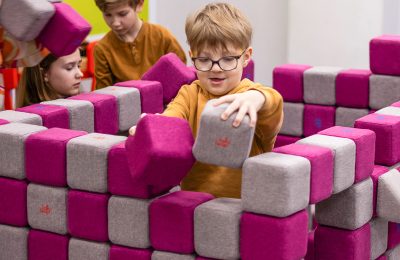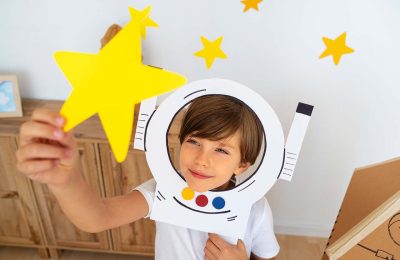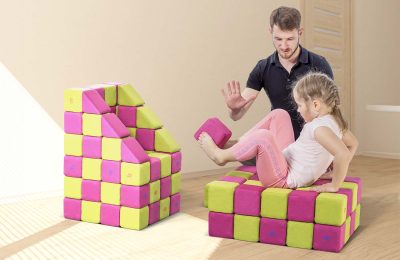The Role of Development Toys in Early Childhood Education
Introduction
Early childhood is an exciting time of discovery, where little ones are curious about everything around them. During these formative years, development toys play a vital role in tapping into this innate curiosity, offering endless opportunities for fun and learning. These toys aren’t just about keeping kids entertained; they’re designed to enhance cognitive skills, boost motor abilities, and promote emotional growth. By engaging with educational toys, children can explore new concepts in a playful and supportive environment, setting a solid foundation for lifelong learning.
Importance of Early Childhood Education
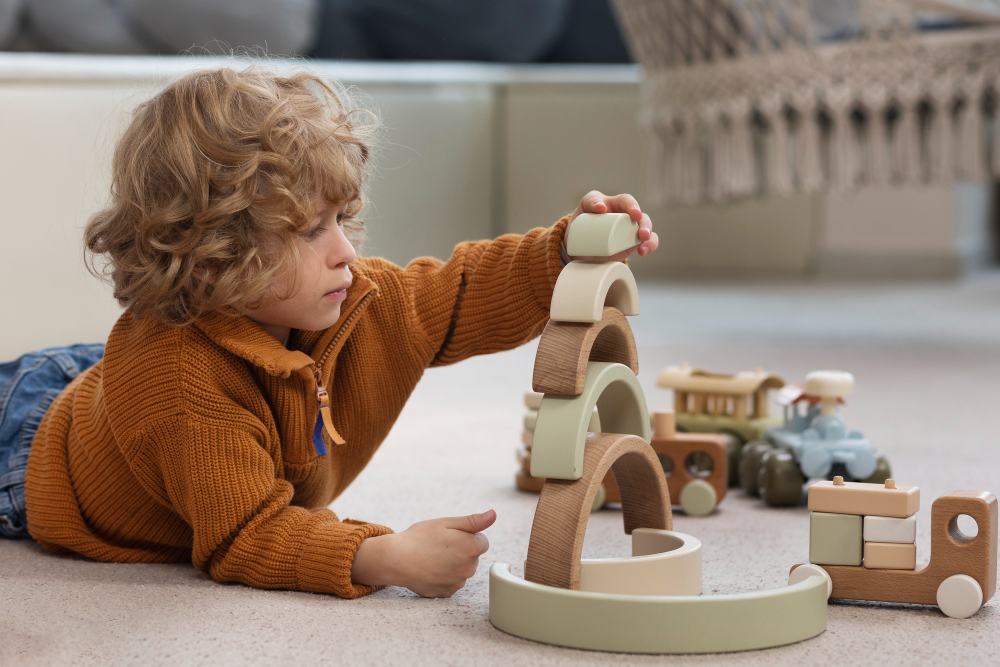
Early childhood education is crucial for setting the foundation for lifelong learning and development. During the ages of 0 to 5, children’s brains grow at a rapid pace, making these formative years vital for nurturing intelligence, creativity, and social skills. By investing time and resources into early education, we are not only enhancing a child’s individual potential but also fostering a future generation prepared to tackle complex challenges.
Cognitive Development
In the early years, cognitive development is akin to planting seeds in a garden; the right conditions and nutrients help those seeds grow into healthy plants. Similarly, providing children with a stimulating environment full of diverse learning experiences enables them to develop the cognitive skills essential for processing information and understanding the world. Skills like memory, attention, and the ability to make connections between ideas are honed during this period. Interactive activities, including puzzles, building blocks, and learning games, stimulate brain development and encourage children to think critically.
Social Skills Enhancement
Social skills are a key component of early childhood education, as they’re the building blocks for effective communication and relationship-building in later life. Through play and group interactions, young children begin to understand the importance of sharing, cooperation, and empathy. Development toys designed for cooperative play, like board games or team-based building activities, can enhance these skills by requiring children to communicate, negotiate, and collaborate.
By playing with others, children learn the nuances of social cues, understand the concept of taking turns, and begin to appreciate different perspectives. This social learning environment helps children grow into capable beings who can navigate diverse social settings with confidence and ease.
Emotional Growth
Emotional growth during the early years lays the groundwork for stability and emotional intelligence as children mature. Early childhood education encourages emotional development by providing children with opportunities to express themselves and empathize with others. Development toys, like dolls or role-playing sets, allow children to explore different emotions, allowing them to play out scenarios from different perspectives in a safe space. This kind of play helps them understand emotions better and teaches them how to manage their own feelings and empathize with the emotions of others.
Learning environments that foster emotional growth ensure that children are equipped to handle challenges, frustrations, and changes, building resilience and adaptability. As children grow, they become more capable of forming secure relationships and demonstrating compassion and understanding, attributes that are invaluable in personal and professional settings.
How Development Toys Aid Learning
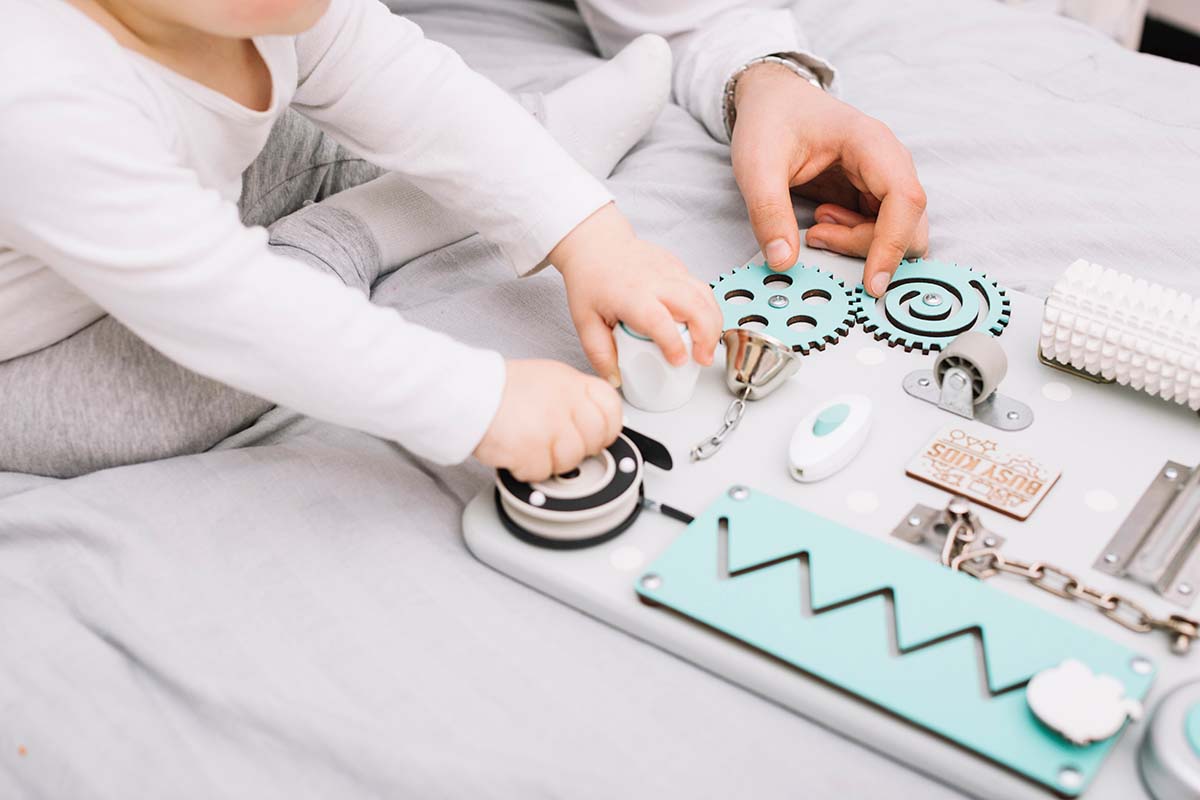
Development toys play an instrumental role in early childhood education by creating a playful and engaging environment that promotes learning in various areas. These toys are not just for fun; they are carefully designed tools that support cognitive, motor, emotional, and problem-solving skills. They lay the foundation for a thriving learning environment by blending education with play, motivating children to learn while they have fun.
Boosting Cognitive Skills
Development toys can significantly boost cognitive skills by engaging children’s brains in meaningful ways. For instance:
– Building Blocks: Encourage spatial awareness and logical thinking. They teach concepts such as balance, symmetry, and geometry when children construct towers or bridges.
– Puzzles: Develop problem-solving abilities and enhance memory as children remember patterns, shapes, and colors needed to complete the picture.
– Memory Games: Improve attention span and cognitive flexibility by requiring children to recall information and make connections over time.
These types of learning activities stimulate the brain, allowing children to exercise their mental muscles. Engaging with toys that challenge their thinking and require them to employ different thought processes aids in building a solid cognitive foundation for future academic success.
Enhancing Motor Skills
Motor skill development is another critical area supported by development toys. These skills are divided into two categories: gross motor skills, involving large muscle groups like those used in running and jumping, and fine motor skills, which rely on smaller muscles essential for tasks like writing and buttoning a shirt. Development toys can enhance both:
– Gross Motor Skills: Toys like ride-on cars, balls, and jump ropes get children moving, promoting body coordination, balance, and physical strength. Activities often double as fun ways to burn off energy.
– Fine Motor Skills: Activities like threading beads, stacking rings, or using play dough refine hand-eye coordination and dexterity. These toys require precision in movement, which helps children gain control over their fingers and hands.
By playing with toys that encourage movement and exploration, children develop control and coordination that are crucial for a wide range of everyday activities, setting them up for success in sports and various physical pursuits.
Encouraging Problem-Solving Abilities
Problem-solving is an essential skill that children need to cultivate for independent thinking and functionality in everyday life. Development toys provide ample opportunities for children to engage in problem-solving exercises without feeling pressured:
– Maze Games and Labyrinths: Encourage children to find solutions by trial and error, teaching patience and persistence.
– Construction Sets: Toys like LEGO or JollyHeap magnetic building blocks urge kids to think creatively and visualize solutions when they construct imaginative structures or follow specific designs.
– Interactive STEM Toys: Encourage experimentation and innovation. Simple circuits or science kits introduce basic principles and invite children to explore and predict outcomes.
When children play with these toys, they organically learn how to approach a problem with an open mind, break it down into manageable parts, and develop strategies to find a solution. This process not only bolsters their confidence but also sets the stage for more complex problem-solving scenarios they will face as they grow.
In conclusion, development toys are more than mere playthings; they are vital educational tools that enhance early childhood education by promoting cognitive, motor, and emotional growth. When children engage with these toys, they embark on a journey of discovery and learning that prepares them to face life’s challenges with knowledge, skills, and confidence. By incorporating development toys into early education, we provide a fun yet meaningful way for children to develop foundational skills that will serve them throughout their lives.
Types of Development Toys
When it comes to enriching early childhood education, development toys play a vital role. They engage youngsters’ minds and bodies and act as foundational tools for growth. Let’s dive into some of the most impactful types of development toys that help shape little learners into well-rounded individuals.
Building Blocks and Construction Sets
Building blocks and construction sets are timeless favorites among children and educators alike. They may look simple, but these toys are instrumental in fostering a child’s cognitive and physical development.
– Spatial Awareness: By manipulating blocks, kids learn about size, shape, and spatial relationships. This is crucial for developing spatial awareness, a skill that plays a part in more advanced mathematical problem-solving later on.
– Fine Motor Skills: As children grasp, stack, and balance blocks, they’re honing their fine motor skills. These movements require coordination and precision that are essential for everyday activities like writing.
– Problem-Solving: Have you ever watched a child experiment with building a tall tower only to gleefully topple it over? Through trial and error, they learn important lessons about cause and effect, balance, and stability.
– Creativity and Imagination: Blocks aren’t just for building towers; they can become castles, spaceships, or even whole cities. Kids use their imagination to transform simple shapes into complex scenes, boosting creativity and storytelling abilities.
Educational Puzzles and Games
Puzzles and educational games are more than just fun—they’re powerful tools for developing a child’s cognitive abilities.
– Cognitive Development: When kids are putting together puzzles, they are engaging their brain to recognize patterns, colors, and shapes. This helps improve memory and enhance their ability to process information.
– Concentration and Attention: Completing a puzzle or playing a game requires focus and patience. These activities train children to concentrate for longer periods, an essential skill for formal schooling and beyond.
– Social Skills: Many educational games involve multiple players, fostering cooperative play. Such interactions teach children about taking turns, sharing, and working together to achieve a common goal.
– Emotional Development: Winning a game can boost a child’s confidence, but learning to cope with losing gracefully is also a crucial lesson in emotional resilience.
Creative Craft Kits
Creative craft kits are a blend of art and play that inspire children to express themselves and think outside the box.
– Self-Expression: Art and craft activities give children the freedom to explore their thoughts and emotions through colorful designs and spontaneous creations. This self-expression is vital for emotional development.
– Hand-Eye Coordination: Crafting requires precision, whether it’s threading a bead or cutting along a line. These tasks help refine a child’s hand-eye coordination and dexterity.
– Innovative Thinking: Craft kits often provide a limited set of materials, prompting children to think creatively and resourcefully. This can lead to innovative problem-solving skills as they experiment with different combinations and ideas.
– Cultural Awareness: Some craft kits expose children to cultural art forms and traditions, broadening their understanding and appreciation of the world’s diversity.
Choosing the Right Toys for Child Development
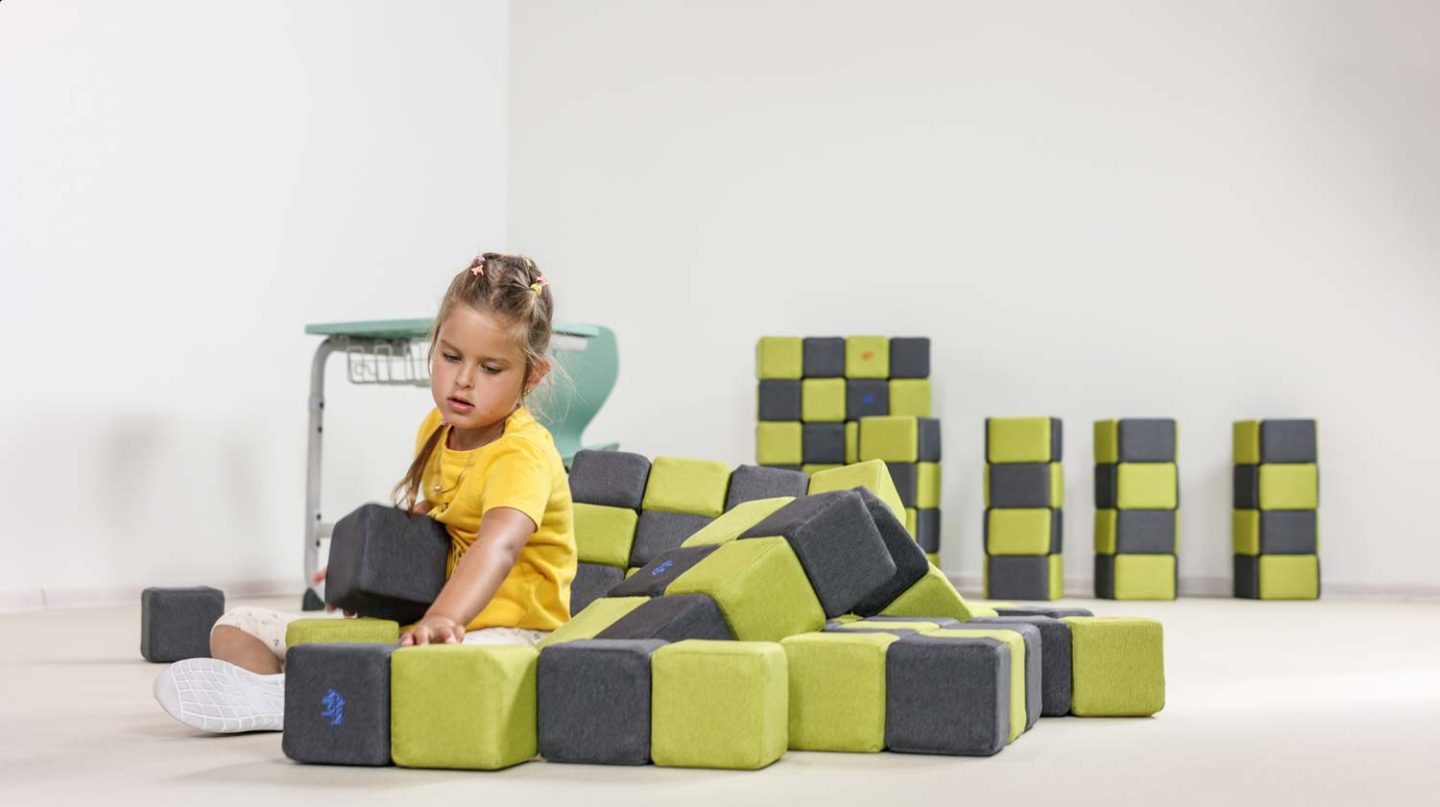
Selecting the appropriate development toys is not just about keeping children entertained—it’s about nurturing their growth across various domains. Here are some tips to keep in mind when choosing toys that will support and enhance your child’s development.
1. Match Toys to Age and Developmental Stage:
– Not all toys are suitable for every age group. Consider what skills your child is currently working on. For infants, simple rattles that encourage sensory engagement might be appropriate, whereas preschoolers could benefit from more complex games that require strategic thinking.
2. Focus on Skill Development:
– Decide which skills you aim to develop. If fine motor skills are a priority, go for toys like building sets or craft kits. For cognitive development, educational puzzles and brain games are ideal.
3. Prioritize Safety and Durability:
– Ensure that the toys are made from non-toxic materials and are robust enough to withstand enthusiastic play. Small parts should be avoided for younger children due to choking hazards.
4. Encourage Imaginative Play:
– Opt for toys that inspire imagination. Toys like blocks, art supplies, or puppets don’t confine children to specific rules, allowing them to create scenarios from their imagination.
5. Look for Versatility:
– Good toys can be used in multiple ways and grow with your child. A simple set of blocks can be a puzzling build for a toddler and a detailed construction project for a preschooler.
6. Inclusivity and Cultural Representation:
– Choose toys that reflect diverse backgrounds and cultures. This can encourage children to appreciate difference and develop empathy and acceptance.
7. Balance Between Independent and Social Play:
– While solitary play is great for introspection and self-motivation, social toys promote teamwork. Ensure you provide a mix of both types of toys.
8. Value Quality Over Quantity:
– It’s better to have fewer well-chosen toys rather than an abundance that overwhelms. Quality toys made from sustainable materials are often more beneficial and environmentally friendly.
In conclusion, development toys are essential in early childhood education as they offer more than just moments of amusement. They are key tools that guide and encourage young minds and bodies to reach those all-important developmental milestones. By selecting the right mix of toys, you will be doing much more than filling a toy box; you’ll be laying the foundation for lifelong learning and growth.
Conclusion
In summary, development toys play a pivotal role in early childhood education. These toys are more than just entertainment for children; they’re tools that promote learning and growth. By engaging with educational toys, children develop key cognitive and motor skills crucial for their overall development. When choosing toys, consider their educational value and how they can inspire creativity, problem-solving, and communication. Investing in the right learning toys can set a solid foundation for a child’s lifelong love for learning.
